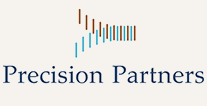Most hosted Constituent Relationship Management (CRM) software comes in software as a service (SaaS)—a delivery model where software is licensed to clients on a subscription basis. As a result, you might wonder whether a hosted CRM could offer you the same functionality that in-house CRM solutions provide.
Although a hosted CRM might be less customizable, it aims to provide an identical standard and variety of tools and functions. When a CRM is hosted, it eliminates the need to install software onto hard drives or provide on-site server infrastructure. Instead, updates are handled by your provider, and changes are administered to all users simultaneously.
But there are several things to consider when choosing a hosting partner for your CRM application. Taking time upfront to do your due diligence helps ensure your CRM application will perform to the specifications you intend—eliminating user frustration and providing the results you need to be successful.
For things to run smoothly and optimize the application to its fullest extent, use this checklist to ensure all critical aspects are covered.
Here are three things to consider when choosing a hosting partner for your CRM application.
Data Center Standards
Compliance, especially when it comes to sensitive data, is vital. Your CRM hosting vendor should follow these data center standards to help you remain compliant.
HIPPA Compliance (healthcare organizations): Information received, cataloged, and shared must meet the privacy and security rules set forth by the Department of Health and Human Services—including the Health Insurance Portability and Accountability Act (HIPAA).
PCI DSS Compliance: The Payment Card Industry Data Security Standard (PCI DSS) optimizes the security of credit, debit, and cash card transactions and protects cardholders against misuse of their personal information. The data center you partner with should have standards in place to remain compliant.
SOC Compliance: SOC 2 compliance is a component of the American Institute of CPAs (AICPA) ‘s Service Organization Control reporting platform. Their goal is to standardize systems, assure security and availability, processing integrity, confidentiality, and customer data privacy. Ask your CRM hosting partner how they plan to help you remain SOC 2 compliant.
Reliability
The reliability and performance of your CRM application are the keys to successful fundraising; any downtime will significantly impact your efforts. This is why it’s crucial to consider the reliability and performance of your CRM hosting partner.
Reliability comes in at different points: availability of your system and disaster recovery.
You must realize that when partnering with a hosting vendor, you are not in control. You’ve handed it to someone else to manage the hardware, architecture, and networking, and 100% availability is not realistic.
But it is important for your CRM hosting vendor to be mindful that for most organizations, every hour down, is a loss of productivity and business. They should ensure your system operates at peak efficiency, striving for a 99.9% availability time.
Another component of reliability is disaster recovery. In many cases, the location of your CRM hosting vendor and data could be anywhere in the United States—likely not in the same area as your organization. Therefore, you need a vendor that provides a comprehensive recovery plan. For example, ask them, “How long will it take for our data to be running and accessible should a disaster occur?”
A disaster recovery program needs to be in place to recover data within a specific period. The particular time of recovery is based on your CRM vendor and a tolerance level set by your institution. Part of your CRM hosting disaster plan should include a network redundancy system—the process by which additional or alternate instances of network devices, equipment, and communication mediums are installed within the network infrastructure.
The network redundancy should include either alternating or different networks within the infrastructure to provide a network failover. The disaster recovery plan should consist of regular testing, and the results should be published and disseminated to appropriate managers.
Performance
If your CRM data is running painfully slow, what’s the point? Your CRM hosting vendor must monitor the system to ensure you are not exceeding established performance thresholds. The performance threshold is again, based on the tolerance level set forth by your organization.
Protocols need to be in place to ensure your CRM system performs to the established standards. Proper monitoring by your hosting vendor should be ongoing, not only that your system is up and available, but that it is meeting your established performance thresholds.
Accessibility
Ask your CRM hosting partner, “What level of access do I have to our CRM data in a host environment?”
Before CRM hosting was developed, your advancement CRM data sat in the exact location of your users. Your technical staff could access the back-end database, and users had access to everything.
But in a host environment, a lot of that access is limited. It is essential to consider the ability to access your data beyond building reports—ensuring your technical and reporting staff can access the data at minimum. Identify how much data they can access before signing your hosting agreement.

